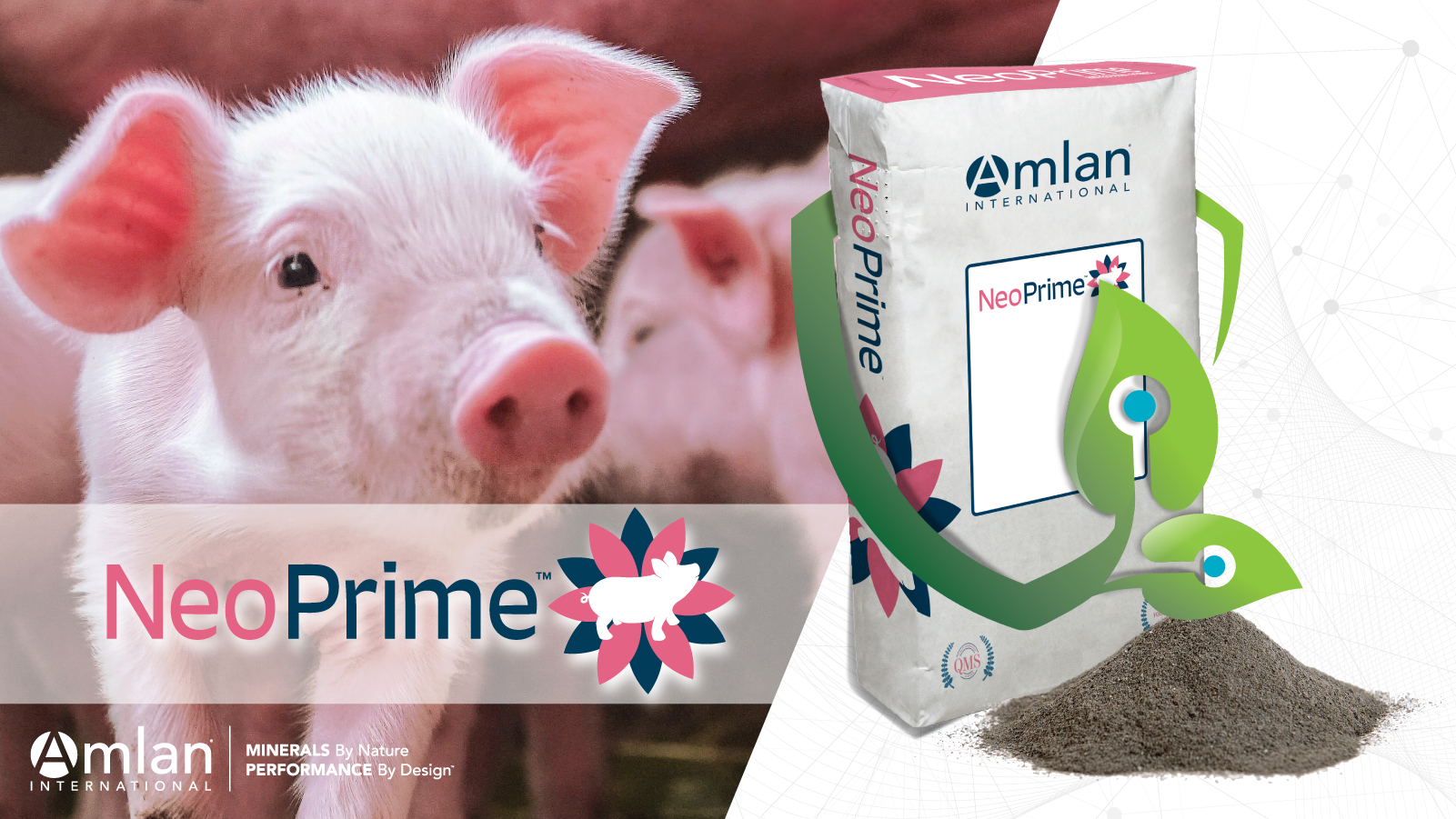Product availability may vary by country, associated claims do not constitute medical claims and may differ based on government requirements.
The performance and health setbacks, like post-weaning diarrhea, that pigs face during weaning (the fallback effect) can affect growth across the pig’s lifetime and cause significant economic loss for producers. Bacterial toxins are common contributors to post-weaning diarrhea, but natural solutions are available that can target these toxins and strengthen the intestinal barrier, helping to reduce the incidence of diarrhea and keep weaned piglet performance on track.
E. coli Toxins: A Cause of Post-Weaning Diarrhea
Escherichia coli (E. coli) produces potent toxins that can cause enteric disease in recently weaned pigs. Enterotoxigenic Escherichia coli (ETEC) is a common cause of post-weaning diarrhea. It produces heat-labile enterotoxin (LT) that alters the electrolyte and water balance in intestinal cells, leading to diarrhea.1 A survey of U.S. ETEC isolates linked to porcine post-weaning diarrhea showed that 57.7% had the heat-labile toxin gene.2
Additionally, when E. coli die, they release endotoxin (lipopolysaccharides, LPS) from the cell wall. Endotoxin can damage intestinal cells leading to weakness in the intestinal barrier that can cause “leaky gut” syndrome, causing diarrhea and allowing endotoxin to enter the bloodstream where it can cause shock or even death.
Calibrin®-Z Is a Natural Binder of Bacterial Toxins
Mineral-based Calibrin®-Z (available in select international markets) helps protect the intestinal environment of swine from a broad spectrum of pathogens and bacterial toxins (including E. coli toxins), as well as fungal toxins like aflatoxin, ochratoxin, fumonisin and zearalenone. Single-ingredient Calibrin-Z undergoes specifically tailored proprietary thermal processing during manufacture that optimizes its binding ability. The result is enhanced bacterial and fungal toxin adsorption without significant binding of important nutrients.
Multiple in vitro studies by third-party laboratories have proven the bacterial toxin binding capabilities of Calibrin-Z. The toxins bound by Calibrin-Z in vitro include E. coli heat-labile enterotoxin and E. coli endotoxin (LPS), as well as difficile (formerly known as Clostridium difficile) toxins, toxin A and toxin B, a cause of enteric disease in neonatal piglets (Figure 1).

Figure 1: Calibrin-Z bound multiple E. coli and C. difficile toxins in vitro.
NeoPrime® for Naturally Healthier Weaning
Traditionally, antibiotics were included in nursery pig diet formulations to improve performance and reduce the risk of disease during weaning. However, concern over antimicrobial resistant pathogens and consumer preferences have reduced the prophylactic use of antibiotics in swine diets. Similarly, high levels of zinc oxide (2,000 to 3,000 ppm) were often added to weaned piglet rations to decrease the incidence of diarrhea and improve weight gain. But this practice has raised concerns of overloading zinc in soil and water when manure is used as fertilizer.
A natural alternative to antibiotic and zinc oxide use is the mineral-based feed additive NeoPrime® (available in select international markets). To counteract the performance fallback effects of weaning, patented NeoPrime positively modifies the intestinal environment, energizes enterocytes for better nutrient absorption and primes the intestinal immune system. The ingredients in NeoPrime — Amlan’s mineral technology plus yeast and a functional amino acid — work synergistically to reduce pathogenic challenges, strengthen the intestinal barrier and safely stimulate the intestinal immune system.
A study conducted by Chi et. al (2018) looked at the performance benefits of adding NeoPrime to a diet that included antibiotics and zinc oxide, as well as the effects when antibiotics, zinc oxide or their combination were removed from the diet.3 The researchers also monitored E. coli endotoxin concentration in blood plasma.
Weaned pigs (90 male, 90 female) 28 days of age (6.8 kg) were randomly assigned to five treatments with six replications. Pigs were fed one of five treatments (Table 1) for 35 days, with feed consumption and body weight recorded on days 14 and 35. The antibiotics used were chlortetracycline (75 g/MT) and olaquindox (100 g/MT), and the zinc oxide was included at a rate of 3 kg/MT. Blood was drawn from one pig per pen on days 14 and 35.
Table 1: Piglets were fed one of five treatments with or without NeoPrime, antibiotics and zinc oxide.
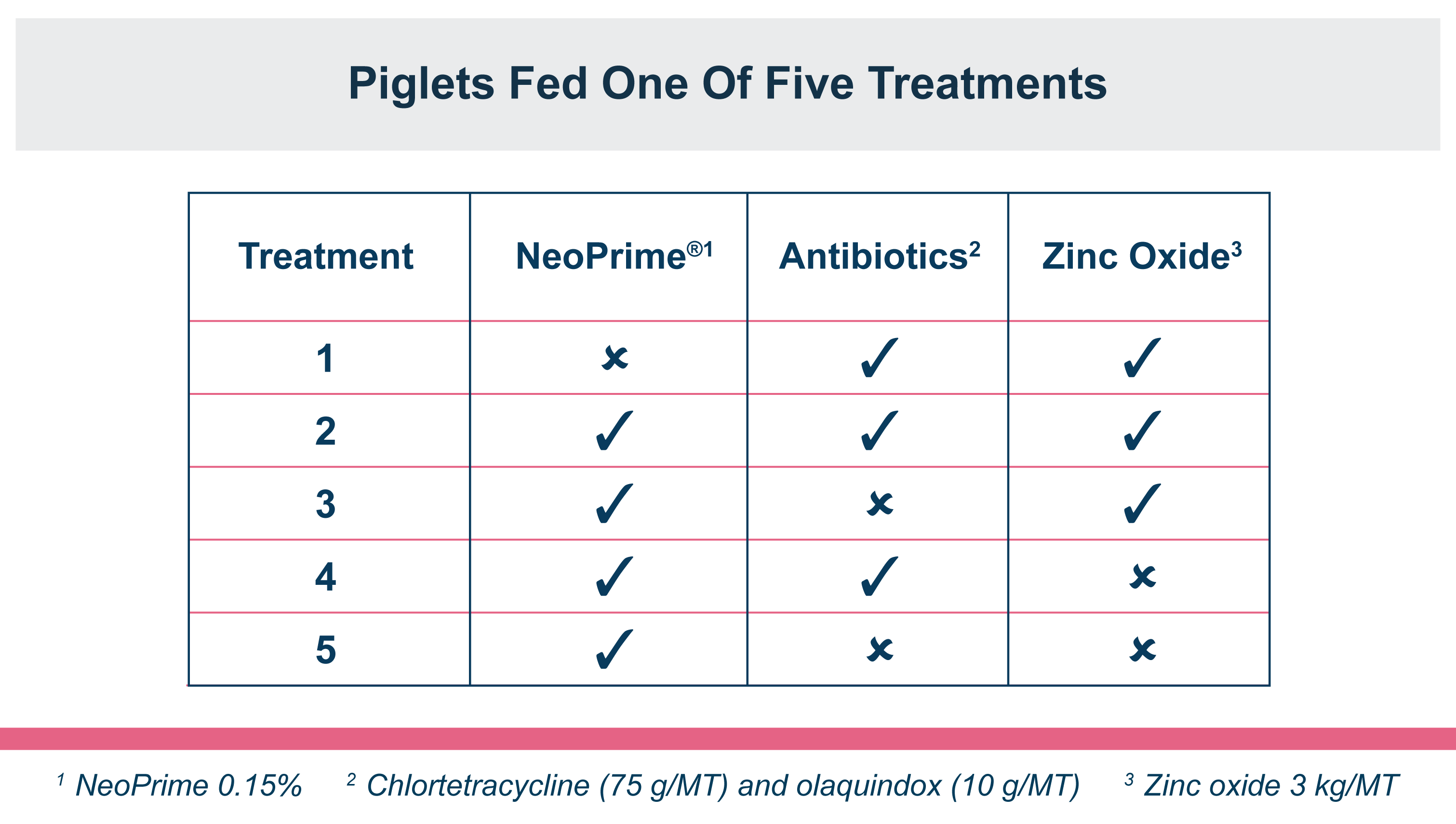
On day 14, pigs fed NeoPrime maintained body weight and feed conversion, even when antibiotics, zinc oxide or their combination were removed from the diet (Table 2). By day 35, pigs fed NeoPrime tended to increase body weight instead of only maintaining performance and had numerically improved feed conversion compared to the control (Table 2). Plasma endotoxin was generally lower when NeoPrime was added to the diet (Figure 2), indicating that NeoPrime bound and removed LPS from the intestine. The research suggests that NeoPrime is an effective natural alternative to prophylactic antibiotic use and zinc oxide supplementation.
Table 2: NeoPrime maintained performance even when antibiotics, zinc oxide or their combination were removed from the diet.
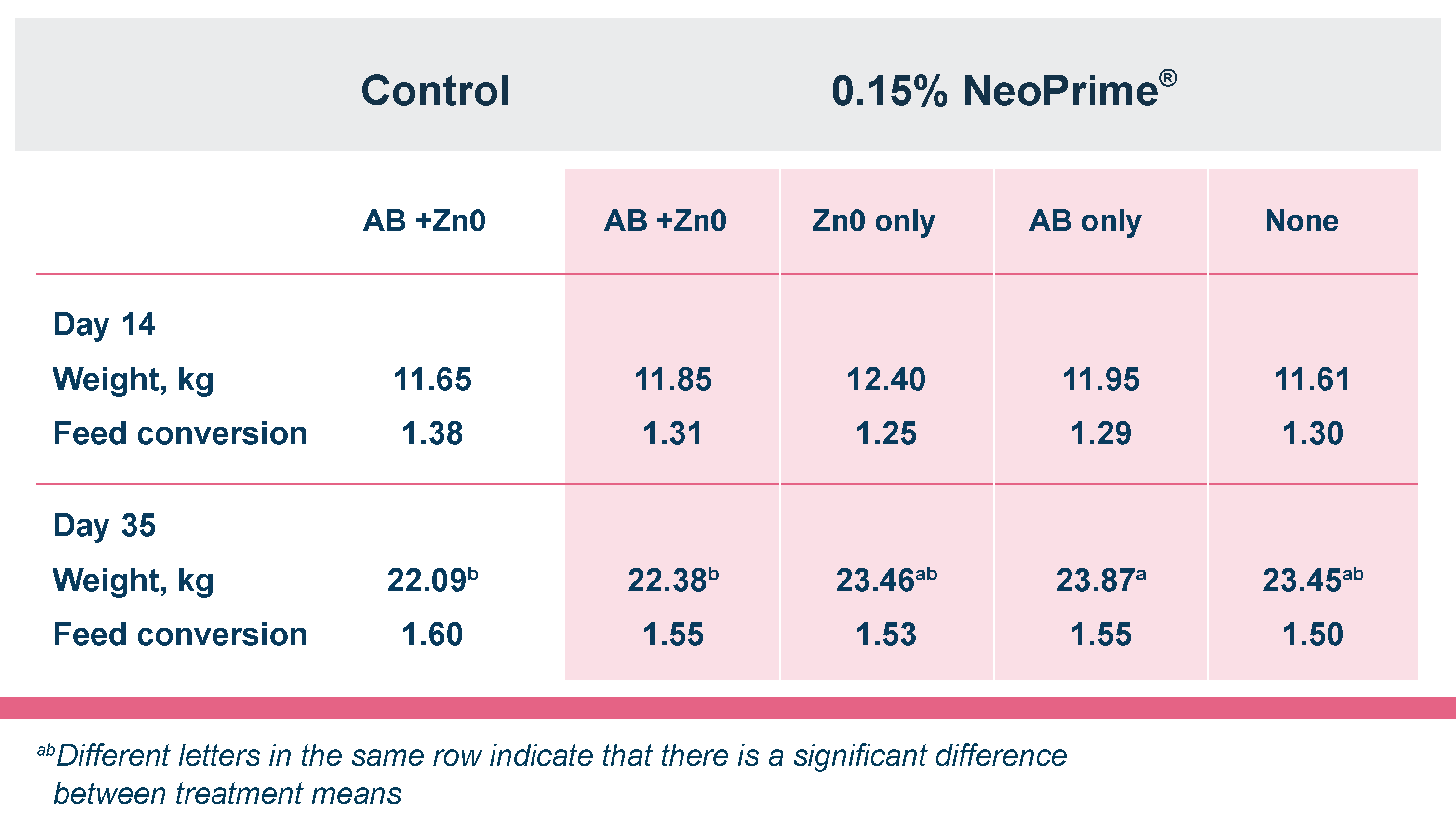
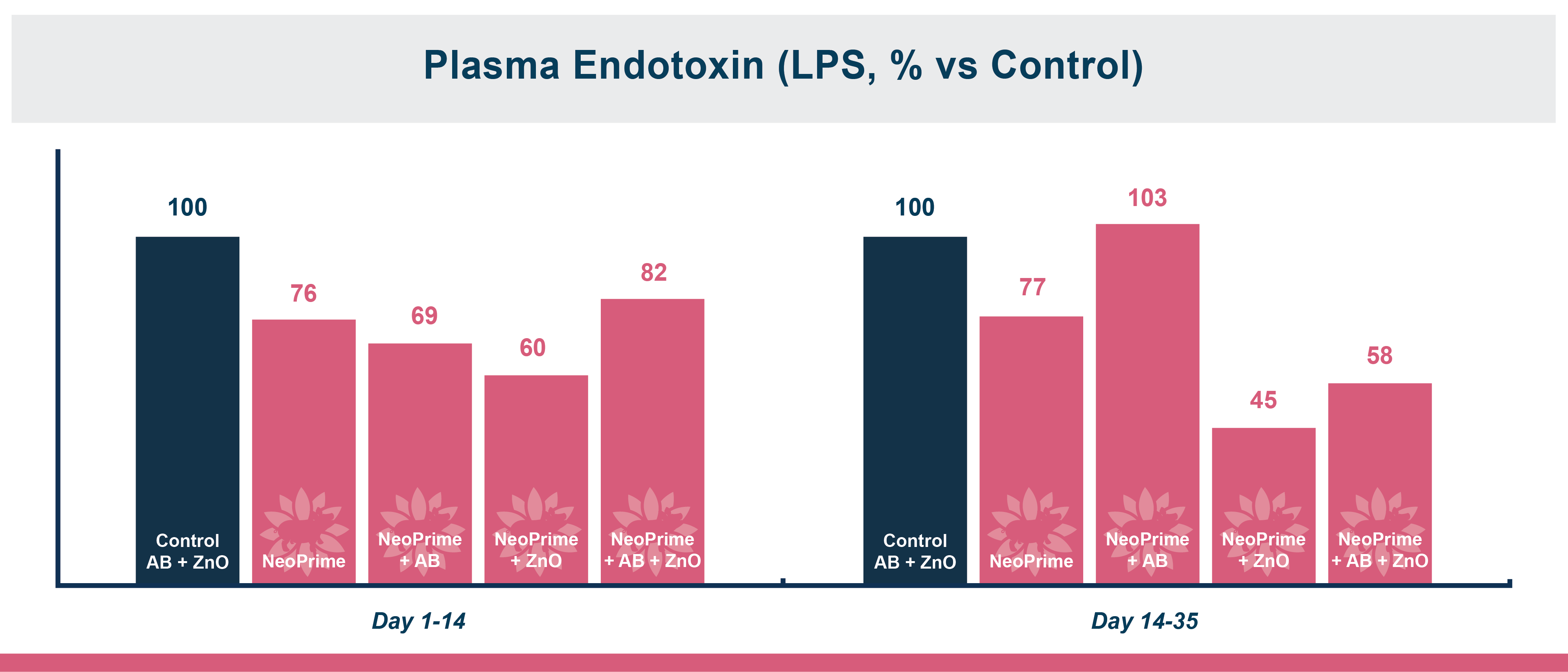
Figure 2: NeoPrime decreased plasma endotoxin compared to the control.
NeutraPath for High-Challenge Environments
In high-challenge environments, swine can be fed NeutraPath® (available in select international markets) which is a proprietary and co-active blend of essential oils, fatty acids and Amlan’s mineral technology. NeutraPath has multiple modes of action, including , decreasing pathogenic bacteria with its bacteriostatic and bactericidal properties and improving intestinal structural integrity. By reducing pathogenic bacterial intestinal colonization, NeutraPath can improve intestinal health and help reduce the incidence of post-weaning diarrhea.
The health and performance benefits of NeutraPath in ETEC-challenged pigs were shown in a study by He et al. (2022).4 Pre-weaned piglets (18 male, 18 female) were enrolled in the study after fecal samples were confirmed to be absent from β-hemolytic E. coli and genotyping verified susceptibility to F18 ETEC. Weaned piglets were fed a control diet, or that diet supplemented with 0.25% or 0.5% NeutraPath for 28 days. After a 7-day adaptation period, pigs were orally inoculated with F18 ETEC. Fecal consistency was scored twice daily after inoculation, and fecal and gut microbiome samples were taken at multiple time points during the challenge period.
Overall, NeutraPath reduced the incidence and severity of diarrhea. The NeutraPath groups had lower (P < 0.05) frequency of diarrhea score ≧ 3 than the control group (Figure 3) and the NeutraPath 0.25% group had lower frequency of diarrhea score ≧ 4 than the control (Figure 3).
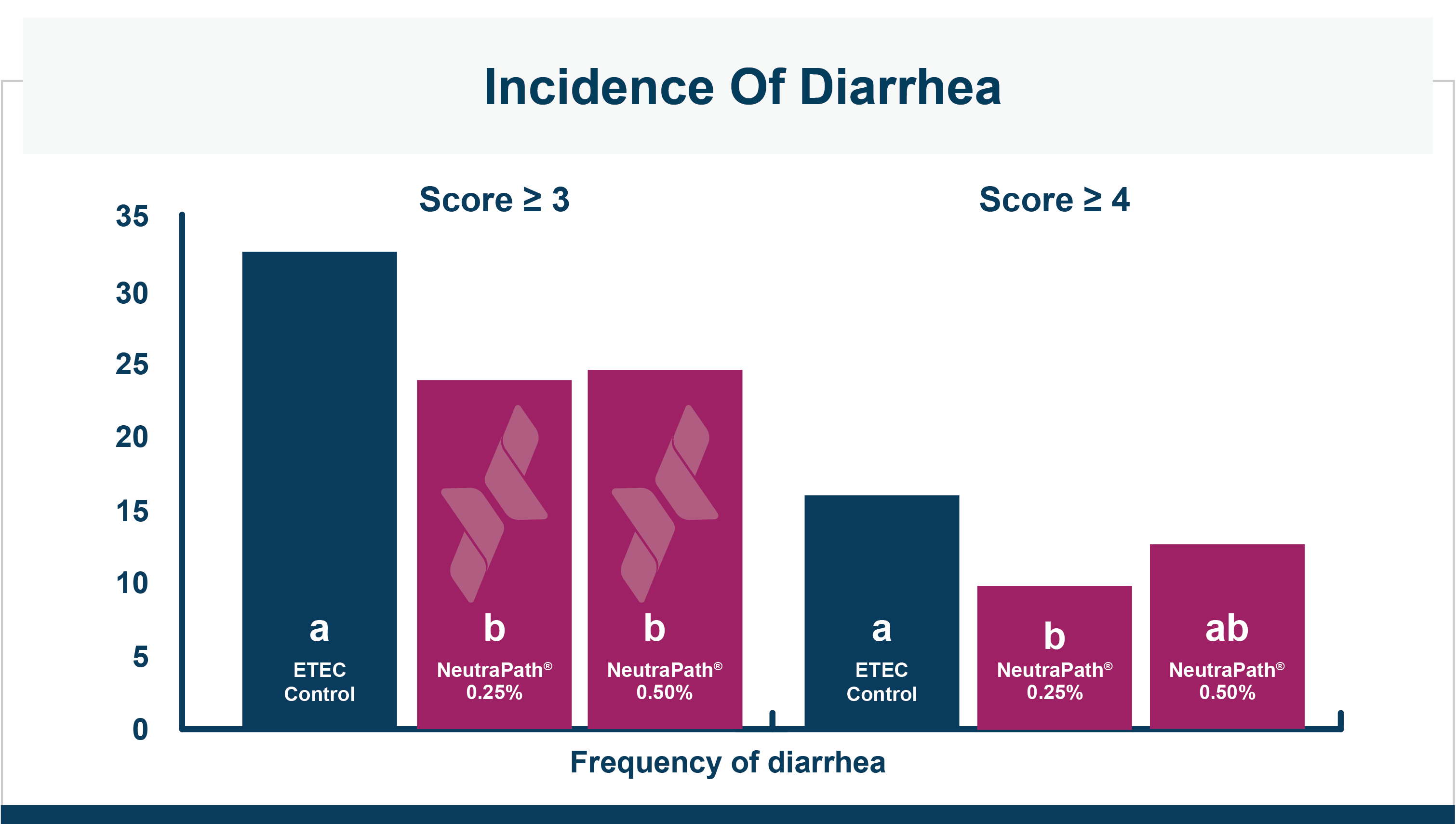
Figure 3: NeutraPath reduced the overall incidence and severity of diarrhea.
Both NeutraPath dose rates improved (P = 0.048) gain:feed from day 14 to 21 post-infection (the recovery period) and improved (P < 0.05) growth across the whole feed period regardless of dose. The overall growth rates were 258% (NeutraPath 0.25%), 261% (NeutraPath 0.5%) and 229% (control) higher than the weight at the day of the challenge.
The study also showed that NeutraPath may help maintain desirable bacteria in the intestine during the ETEC infection period (Figure 4). On day 7 post-infection, both NeutraPath groups had a higher relative abundance of Lactobacillaceae and reduced relative abundance of Bacteroidaceae and Enterobacteriaceae in fecal samples. The NeutraPath 0.5% group also had increased relative abundance of Lachnospiraceae in feces on day 7 post-infection and enhanced relative abundance of Clostridiaceae1 and reduced Enterobacteriaceae in the ileal mucosa.
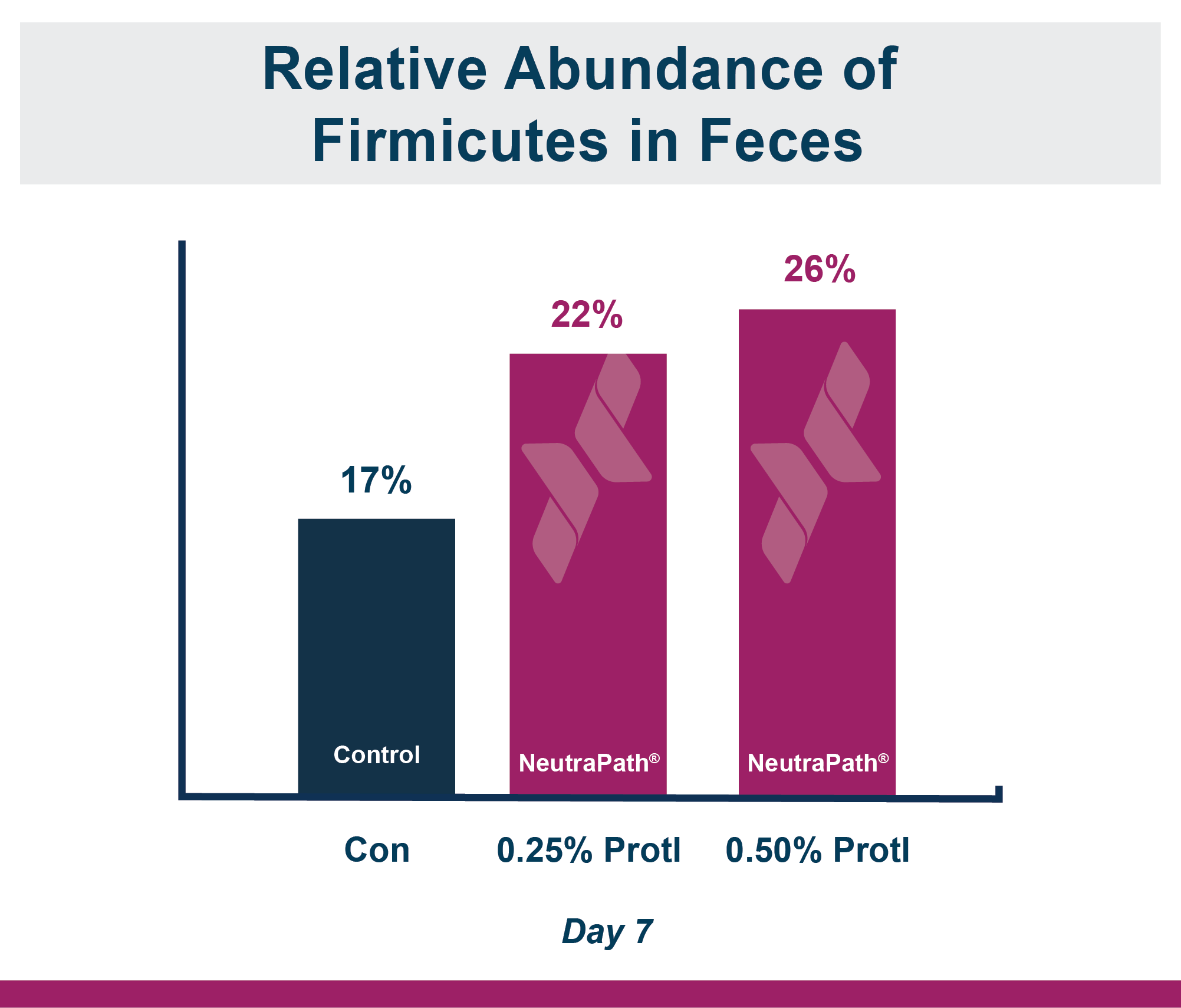
Figure 4: NeutraPath helped maintain desirable bacteria in the intestine during the ETEC infection period.
Changes to the fecal microbiome and ileal mucosa microbiota composition indicated that NeutraPath may be able to maintain a more favorable intestinal environment during ETEC infection. NeutraPath also reduced the incidence and severity of diarrhea and had better performance during the recovery period in this study, suggesting NeutraPath is an effective natural method for managing post-weaning diarrhea.
Amlan offers swine producers a range of natural options to help manage post-weaning diarrhea in piglets. Our products can reduce the pathogen load in the intestinal environment and strengthen the intestine, keeping weaned piglets healthier and more productive. For more information on our range of natural solutions for post-weaning diarrhea, contact your local Amlan representative.
References
- Duan Q, Xia P, Nandre R, Zhang W, Zhu G. Review of Newly Identified Functions Associated with the Heat-Labile Toxin of Enterotoxigenic Escherichia coli. Front Cell Infect Microbiol. 2019;9:292. https://doi.org/10.3389/fcimb.2019.00292
- Zhang W, Zhao M, Ruesch L, Omot A, Francis D. Prevalence of virulence genes in Escherichia coli strains recently isolated from young pigs with diarrhea in the US. Vet Microbiol. 2007;123:145–152. https://doi.org/10.1016/j.vetmic.2007.02.018
- Chi F, Johnston S, Tang X, Chen W, Wang B, Tang S. PSIV-28 Effects of replacing zinc oxide and antibiotics with NeoPrime® on growth performance and plasma and fecal endotoxin concentration in nursery pigs. J Anim Sci. 2018;96(Suppl 3):321. https://doi.org/10.1093/jas/sky404.706
- He Y, Jinno C, Li C, Johnston SL, Xue H, Liu Y, Ji P. Effects of a blend of essential oils, medium-chain fatty acids, and a toxin-adsorbing mineral on diarrhea and gut microbiome of weanling pigs experimentally infected with a pathogenic Escherichia coli. J Anim Sci. 2022;100(1):skab365. https://doi.org/10.1093/jas/skab365
